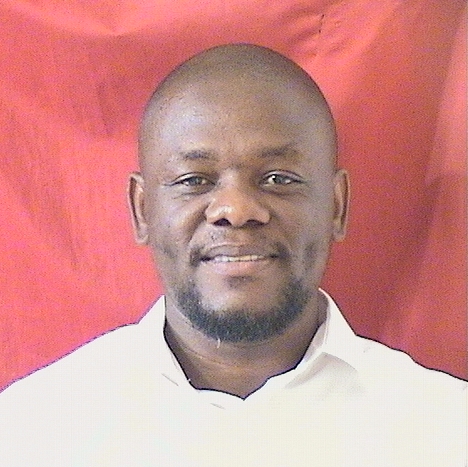Profile
Benjamin Apraku Gyampoh (Benji) is a Senior Lecturer at the Department of Fisheries and Watersshed Management of the Faculty of Renewable Natural Resources, Kwame Nkrumah University of Science and Technology (KNUST), Kumasi, Ghana. He is [Founding] Editor-in-Chief of Scientific African journal published by Elsevier (https://www.sciencedirect.com/journal/scientific-african), Impact Factor of 2.9, 82nd percentile (Q1), and Professional and Scholarly Excellence (PROSE) award winner for "Best New Journal in Science, Technology and Medicine" 2020 by the Association of American Publishers (AAP).
His areas of expertise are Climate Change Vulnerability Assessments; Adaptation and Mitigation Strategies to Climate Change; Watershed and Water resources management; Environmental systems analysis and interdisciplinary research; Fsheries Management; and Indigenous knowledge systems. He has published scientific works from his research and is a reviewer for many journals and scholarly work. He has commendable experience in training and capacity building; research management and administration; strategic thinking, policy influence and development; data analysis and reporting; fundraising and partnership development; communication and coordination; and writing and editing.
He holds a BSc (Hons) Natural Resources Management and PhD Watershed Management from the Kwame Nkrumah University of Science and Technology, Kumasi, Ghana. He also has certificates in "Combating Desertification" from the Cold and Arid Regions Environmental and Engineering Research Institute (CAREERI), Chinese Academy of Sciences, Lanzhou, China; "Drought and Flood Monitoring in Trans-boundary Water Basins" from the Faculty of Geo-information Science and Earth Observation (ITC) of the University of Twente, The Netherlands, and KNUST, Ghana; "GEO-informatics for Hydrological Modelling" from the Faculty of Geo-information Science and Earth Observation (ITC) of the University of Twente, UNESCO-IHE and the Geographic Information System and Remote Sensing Centre of the National University of Rwanda (CGIS-NUR). Other trainings undertaken include the Fourth Interdisciplinary Summer School on Geoengineering at the Harvard School of Engineering and Applied Sciences, Harvard University, USA; the Dissertation Initiative for the Advancement of Climate Change Research (DISCCRS VI) in Colorado Springs, USA, under the auspices of the U.S. National Science Foundation (NSF) and the U.S. National Aeronautics and Space Administration (NASA); and "Weather and Climate Forecasting in Africa and its Application to Agriculture & Water Resource Management" at the Kwame Nkrumah University of Science and Technology, Kumasi, Ghana.
Benji was previously with the African Academy of Sciences (AAS) in Nairobi, Kenya, from 2012 till 2018, where he had responsibility for the climate change programmes and postdoctoral research fellowships and also editor-in-chief of the AAS newsletter, “Science*Policy*Africa”; Affiiate Lecturer with the Institute of Climate Change Adaptation of the University of Nairobi, Nairobi, Kenya; and the Africa Office of the International Water Management Institute (IWMI) in Accra, Ghana. He has collaborated with many international and national organisations. These include the Africa Union Commission; The New Partnership for Africa's Development (NEPAD); Africa Climate Policy Centre (ACPC), Addis Ababa, Ethiopia; African Science Technology and Innovation Indicators (ASTII); UK’s Foreign, Commonwealth & Development Office (FCDO); The International Development Research Centre (IDRC) Canada; Evaluation of Africa Prize programme of the Royal Academy of Engineering (RAEng); The Technical Centre for Agricultural and Rural Cooperation (CTA), The Netherlands; Resilient Futures Programme of the Royal Society, UK; and the International Union for the Conservation of Nature (IUCN). Others are the Africa Adaptation Programme (AAP) on Climate Change, United Nations Development Program (UNDP); Environmental Protection Agency (EPA) of Ghana; and the Ministry of Food and Agriculture (MoFA), Ghana.
He is passionate about developing robust, reliable scientific systems and infrastructure for knowledge-led and evidence-based decision making for sustainable global development. He works to create strong and meaningful partnerships and right environments for science development and scientists to thrive and excel in Africa.

